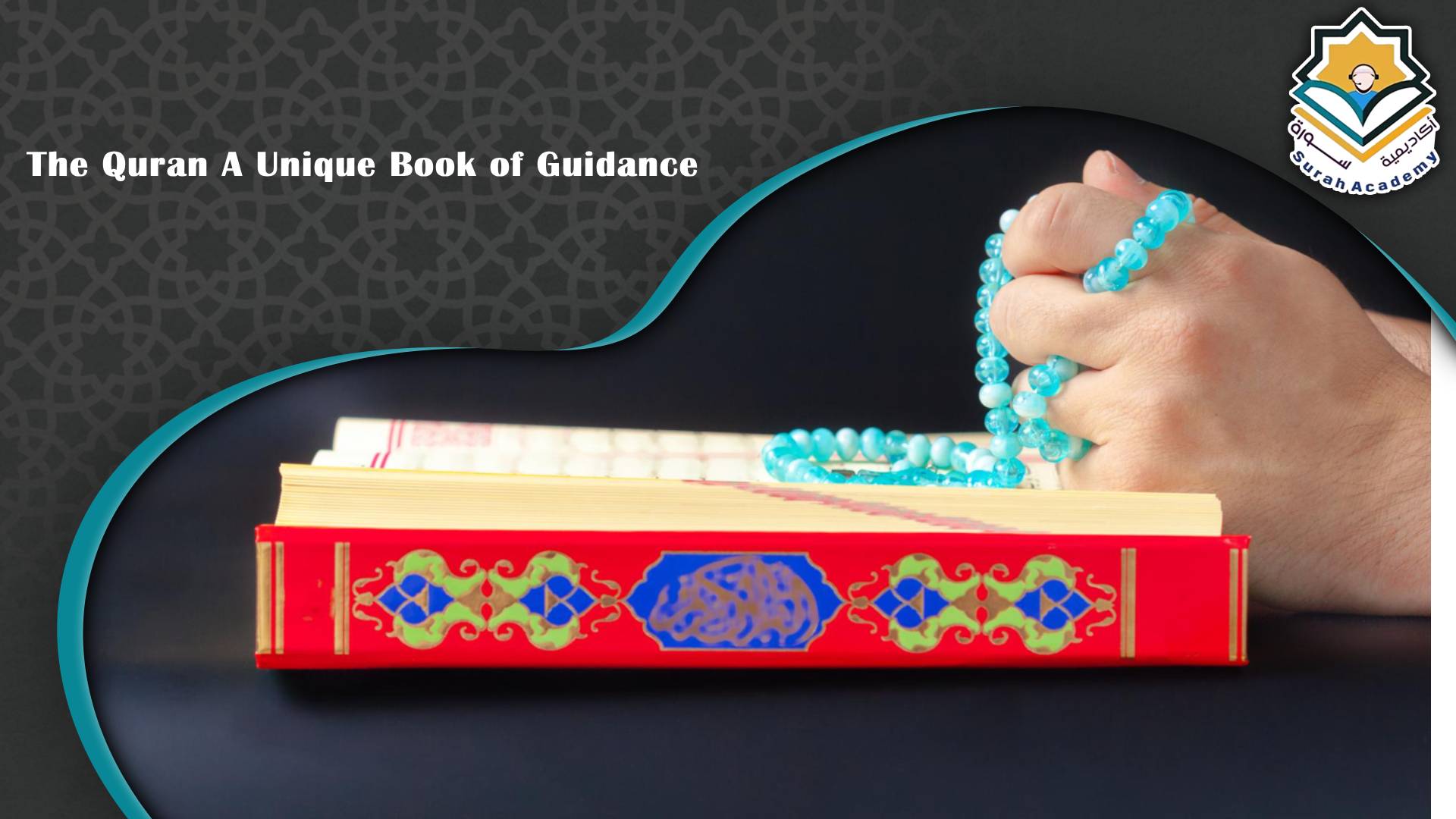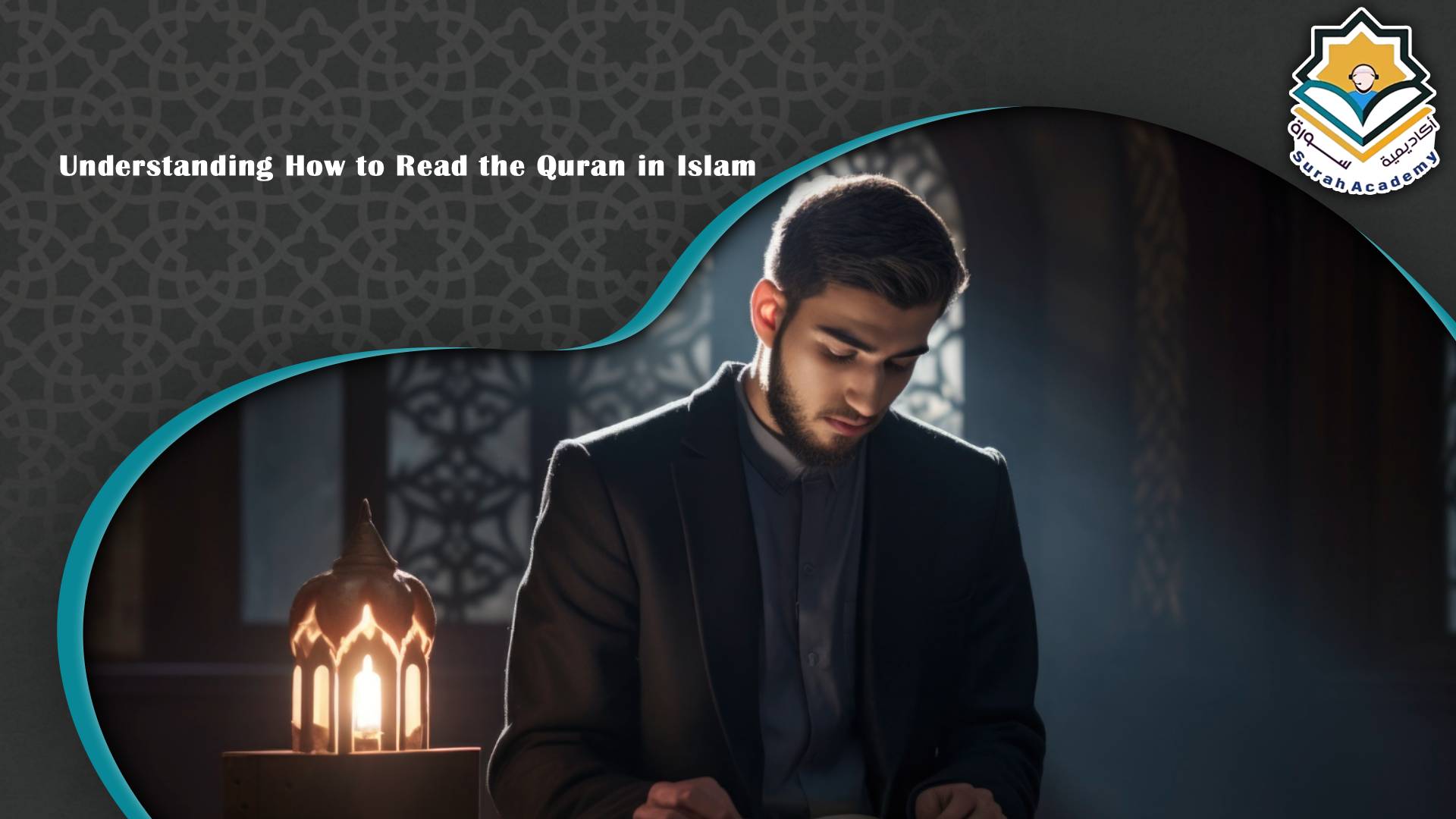Islam and the Quran form the foundation of the Islamic faith, offering guidance, purpose, and a complete way of life for millions around the world. At Surah Academy, we strive to explore and share the timeless wisdom of the Quran and its vital connection to Islamic beliefs, practices, and identity.
The Quran is not merely a religious scripture—it is a living message that continues to shape individual lives and global communities through its teachings on faith, ethics, justice, and spiritual growth. Understanding Islam and the Quran is essential for anyone seeking to comprehend the true spirit of Islam and its profound impact on history, culture, and personal transformation.
The Quran A Unique Book of Guidance

The Quran is a book, but unlike any other. In the context of islam and the quran, it contains words believed by Muslims to be the direct revelation of God, delivered in the Arabic language to the final prophet and messenger. What sets the Quran apart in islam and the quran studies is not just its divine origin, but the depth, power, and timeless relevance of its message. It speaks to both the heart and mind, offering guidance, wisdom, and reflection for all of humanity, which is central in understanding islam and the quran.
The Quran refers to itself by many names, each highlighting a unique aspect of its nature. In the discourse of islam and the quran, it is called Al-Furqan (The Criterion), as it distinguishes truth from falsehood. It is Adh-Dhikr (The Reminder), continuously calling people to remember their purpose and Creator. It is also Al-Huda (The Guidance), showing the straight path in life, and An-Nur (The Light), illuminating the way for those in darkness. As a mercy for all worlds, it promotes justice, compassion, and peace—core themes in islam and the quran.
More than fourteen centuries after its revelation, the Quran remains deeply influential in islam and the quran discussions. Its verses continue to inspire reflection, spiritual growth, and personal transformation. Reading the Quran is not a passive act—it is an active journey of learning, understanding, and striving to live a meaningful and upright life, a key principle in islam and the quran.
Begin Your Quran Learning Journey with Surah Academy
Whether you’re a beginner or seeking to strengthen your bond with the Quran, Surah Academy provides expert-led, interactive Quran classes for all ages. Immerse yourself in a supportive, spiritually enriching environment that fosters personal growth and encourages a lasting connection with the Quran. Take the first step today—enroll now and enhance your Quranic journey with Surah Academy.

The Quran Recitation and Written Word
The Quran is experienced in two primary forms: as a recited text and as a written scripture. In islam and the quran, the act of reciting the Quran aloud is deeply spiritual and rooted in tradition, allowing the words to resonate emotionally and spiritually. This oral dimension gives life and rhythm to the text, connecting the listener to centuries of recitation and devotion, a vital aspect of islam and the quran.
On the other hand, the written form provides structure and permanence. In islam and the quran, it allows for reflection, study, and deeper understanding. Through reading, individuals can engage more closely with the meanings and themes, contemplating the wisdom conveyed in each verse. The balance between recitation and writing creates a holistic relationship with the Quran, where the heart and mind both participate in the experience, a balance emphasized in islam and the quran.
Today, digital platforms offer access to both forms—audio recordings of recitations and visual displays of the script in Arabic and various translations. This dual access strengthens the connection between believers and the divine message, making it more accessible and impactful across cultures and languages, a development important in modern islam and the quran studies. Whether recited aloud or read silently, the Quran continues to inspire reflection, offer comfort, and serve as a spiritual guide for individuals seeking closeness to the Creator and purpose in their lives, a cornerstone of islam and the quran.
Divine Speech and Living Guidance
The Quran is regarded by Muslims as the direct speech of God, a divine communication sent to humanity. In islam and the quran, it holds the highest authority in the lives of believers, offering clarity, truth, and timeless wisdom. While the original revelation was in Arabic, it has been translated into many languages, allowing people around the world to engage with its meanings and reflect on its teachings—an important facet of islam and the quran.
The Quran is not only a sacred text but also a source of constant remembrance. In islam and the quran, it encourages believers to keep God present in their thoughts, words, and actions. Through its verses, the Quran offers guidance for both personal conduct and collective responsibility, addressing moral, social, and spiritual dimensions of life. It reminds people of their purpose, their accountability, and the importance of compassion, justice, and humility, which are core themes in islam and the quran.
More than a book, the Quran is a living guide that shapes the character of individuals and the conscience of communities. In times of peace or hardship, islam and the quran show it provides direction and reassurance, helping believers navigate the complexities of life with faith and integrity. Its message continues to resonate, offering a path of light for those seeking meaning, hope, and a deeper connection with the Divine—central in islam and the quran.
The Quran A Call to Reflection and Evidence
The Quran does not ask for blind or unquestioning belief. Instead, islam and the quran emphasize that it encourages every individual to think critically, reflect deeply, and examine the evidence presented within its verses. This approach appeals to the intellect and the heart, forming the foundation for why many believers are convinced of its divine origin, a key argument in islam and the quran scholarship.
From a historical perspective, the Quran stands out as a uniquely preserved scripture. From the moment of its first revelation, it was transmitted both orally and in written form by an entire community dedicated to its protection and memorization. This dual method of preservation ensured its accuracy over time, making it unique among religious texts and a focus of islam and the quran studies.
The consistency of its transmission and the collective commitment of generations to its preservation provide compelling support for its authenticity. Moreover, the profound impact of its message on early communities—who completely transformed their way of life—is a subject often highlighted in islam and the quran.
The Quran not only established a new spiritual outlook but also formed the basis for a just and ethical society. It created a sense of purpose, unity, and resilience among those who followed it, becoming a source of inspiration and guidance that transcends both time and place, a truth central to islam and the quran.
Quran A Lasting Miracle and Guide
The Quran’s power lies not only in its preservation or historical impact but also in the transformative nature of its teachings. In islam and the quran, it introduced values, principles, and ethics that elevated individuals and reshaped entire societies. Its guidance continues to bring clarity, peace, and reform to people around the world, regardless of background—a universal message in islam and the quran.
The message addresses every aspect of life—spiritual, personal, and societal—calling humanity toward justice, compassion, and personal growth. This transformation is not theoretical; it is witnessed in the lived experiences of those who apply its teachings sincerely, a key insight in islam and the quran.
Furthermore, the Quran presents itself as a miracle—one that challenges human capacity. Its eloquence, structure, and literary style are considered inimitable. Despite being revealed in an environment rich in language and poetry, those who were most skilled in speech could not replicate its style or match its depth. This literary uniqueness, often referred to as the Quran’s linguistic miracle, remains a subject of study and admiration in islam and the quran.
Yet the miraculous aspects are not limited to language alone. As human knowledge evolves, new insights emerge from the Quran’s content—touching on science, psychology, ethics, and beyond. These layers of meaning continue to unfold, offering timeless relevance and reinforcing the belief that this message comes from a source far beyond human intellect, a central theme in islam and the quran discourse.
Online Quran Academy
An Online Quran Academy provides a flexible and accessible way for students around the world to learn the Quran at their own pace and convenience. One such platform is Surah Academy, which is committed to delivering high-quality Quranic education through expert instructors, structured courses, and interactive learning tools.
Whether you are a beginner learning how to read the Quran, someone looking to improve your Tajweed, or aiming to memorize the Quran, Surah Academy offers personalized programs to meet your needs. With one-on-one classes, qualified male and female teachers, and a curriculum rooted in authentic Islamic principles, students of all ages can develop a strong connection with the Quran from the comfort of their homes.
This approach makes Quran learning more accessible, especially for busy families, working professionals, and children. As a trusted online Quran academy, Surah Academy continues to help learners grow in faith, understanding, and spiritual connection through the timeless message of the Quran.
The Quran and Global Muslim Communities
The Muslim population around the world is vast and culturally diverse, representing the adaptability and universality of the Islamic faith. In islam and the quran, Muslims come from many ethnicities, cultures, and languages, and they live on every continent. This diversity shows how Islam transcends cultural boundaries while preserving its core spiritual message, an essential concept in islam and the quran.
Most Muslims reside in Asia, with countries such as Indonesia, Pakistan, India, and Bangladesh having the largest populations. However, there are also significant Muslim communities in Africa, the Middle East, Europe, and North America. This widespread presence reflects how Islam has become a global religion that embraces different cultural backgrounds while uniting believers around shared values and teachings, a focus of islam and the quran studies.
The Quran, originally revealed in Arabic, has been translated into more than one hundred languages worldwide. Each translation aims to convey the meaning of the original text as clearly and accurately as possible. However, since language structures and cultural contexts differ, every translation is also an interpretation to some degree. Because the Quran is regarded as the literal word of God, the Arabic text holds a unique and sacred status among Muslims, a topic often discussed in islam and the quran scholarship.
Translations help non-Arabic speakers understand the message but are not seen as replacements for the original scripture. Scholars encourage readers to consult the Arabic text for deeper understanding. These translations play a vital role in making the Quran’s teachings accessible to millions, fostering spiritual connection across diverse cultures and languages, crucial to the study of islam and the quran.
Read also: online quran classes uk
Understanding How to Read the Quran in Islam

In Islam, the Quran holds a central place as the ultimate source of guidance and spiritual wisdom. Many newcomers to the Quran wonder if they should read it from beginning to end in the order it is compiled. In islam and the quran, while the Quran is arranged in a specific order within the written text, there is no strict rule that requires readers to follow this sequence.
The Quran itself does not prescribe a particular order for reading its chapters. This flexibility reflects the nature of the Quran as a timeless guide, intended to address diverse situations and individuals at different times, an important lesson in islam and the quran.
Each chapter (surah) and verse stands on its own, offering meaningful guidance that can be understood independently. Readers can explore the Quran based on their own needs or interests, engaging with its teachings in ways that resonate personally, a practice encouraged in islam and the quran.
The Quran’s chapters and verses were revealed gradually over many years within different contexts, meaning their arrangement in the Quran’s current form is not chronological. This reveals that the thematic and spiritual messages are more important than the order of reading. Islam encourages believers to seek knowledge with an open heart and mind, finding lessons and inspiration in the Quran’s words regardless of where they begin.
Whether one reads the Quran for comfort, ethical guidance, or spiritual growth, the emphasis is on sincere reflection and application—a core principle of islam and the quran.
Ultimately, the relationship between Islam and the Quran is deeply personal, and every reader’s journey is unique, reflecting the profound and living connection found in islam and the quran.
Read also: learn quran online in london
Frequently Asked Questions
Here are some common questions and answers about Islam and the Quran, providing a deeper understanding of these important topics.
What are the main teachings of Islam?
Islam teaches the oneness of God (Allah), the importance of faith and worship, and living a righteous life according to the teachings of the Quran and Hadith. Key practices include the five pillars of Islam: faith, prayer, charity, fasting, and pilgrimage.
How was the Quran revealed to Prophet Muhammad?
The Quran was revealed to Prophet Muhammad over a period of approximately 23 years through the Angel Gabriel. The revelations were given to Muhammad in stages, guiding the early Muslim community.
In conclusion, Islam and the Quran remain deeply intertwined, offering a comprehensive framework for belief, worship, morality, and community life. The Quran continues to guide Muslims through its divine message, timeless wisdom, and spiritual depth. Through the study and application of its teachings, individuals can find clarity, peace, and purpose in an ever-changing world.
At Surah Academy, our mission is to support this journey of understanding by providing access to authentic knowledge and thoughtful reflection. Whether one is beginning their path or seeking deeper insight, exploring Islam and the Quran opens the door to a richer, more meaningful connection with the Creator and with humanity.
Read more: learn quran in u k
